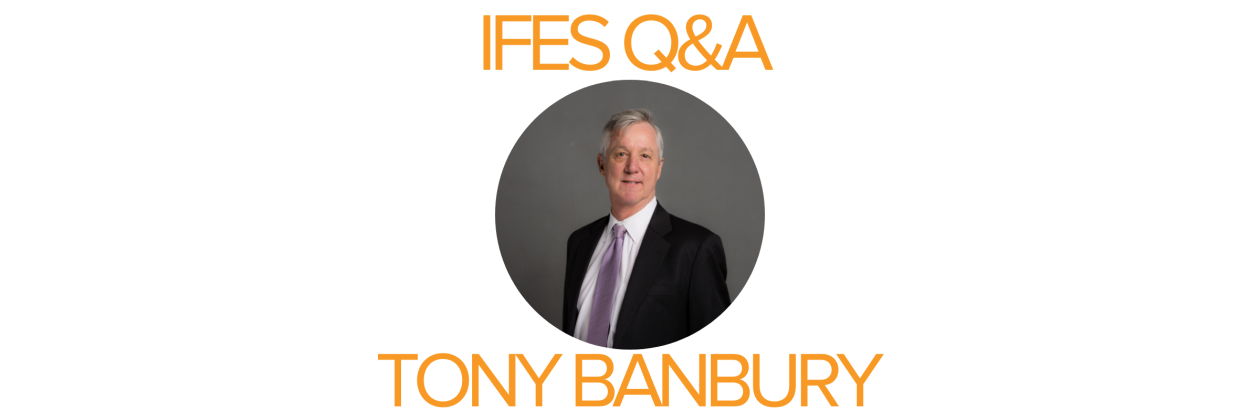
IFES Q&A: Tony Banbury
This Q&A originally appeared in the IFES Voice on April 10, 2023.
Takeaways from the Summit for Democracy
What commitments and themes stood out to you at the second Summit for Democracy compared to the first?
The second summit was much more inclusive because the U.S. had four cohosts. It wasn’t just focused on Washington since each of the cohosts had an in-person event; it drove a lot of attention to those capitals in the Netherlands, Costa Rica, the Republic of Korea, and Zambia. There was also a much more prominent role of civil society in the preparation of the summit and their participation. At the first summit, the theme was really democracy; and at the second, it was democracy, but with five sub-themes associated with each of the cohosts. So, anti-corruption, media freedom, youth, electoral integrity, and technology and democracy. Those themes were the drivers of discussions leading up to and during the summit. And the work of the 17 cohorts, covering such a wide range of areas, drove a lot of the conversations to make real tangible progress in the areas they covered.
In your conversations with government officials and civil society leaders in Lusaka, how do leaders view the forecast of global democracy? Is it optimistic?
I attended the event in Lusaka, hosted by the Zambian government, which focused on electoral integrity. President Hichilema of Zambia opened the event and gave what I thought was a very powerful address that gave me a lot of optimism—and I'm sure gave others optimism, certainly for Zambia—but more broadly, I think, for democracy in Africa and beyond. He has a very inspiring story of being a former political opposition jailed for his views by the government beforehand. And when you see someone fighting against anti-democratic forces and being jailed for it, who then can run for president and win very decisively, not only is that an uplifting story, but it is a testament to the conviction that people—in this case, in Zambia—have for democracy. When people can have their voices heard, I think they're going to choose democratic forces and democratic leaders, and that was a cause for great optimism.
In leading two cohorts, what did IFES learn from its global partners and the people it impacts?
One of the great aspects of IFES’s work, whether it's in the disability rights cohort, election integrity, or anywhere we work around the world, is that we are not just working with partners, but we're also learning from partners. Everywhere we are, even when we have great expertise that we are sharing from the IFES experience, we are at the same time learning. That commitment to going down a path together is reflected in the first word of our mission statement: “together.” Together we build resilient democracies that deliver for all. In the case of those two cohorts, we were working with the Government of Australia and lots of civil society groups in the disability rights cohort and with the Election Commission of India, which runs the largest democratic elections in the world, as well as Mauritius and Greece. In those settings, we gain valuable perspectives and insights from our partners.
What is the biggest challenge facing democracy right now, and how do you hope the third Summit and the year ahead will address it?
The greatest challenge facing democracy now is when democracies are not able to deliver on the needs and expectations of their people. That leads to great frustration by a population who, in that frustration, creates a vulnerability to authoritarians, populists, or nationalists to offer alternative approaches to make enemies of other groups. There's a risk that things can become very unstable in that country. In the run-up to the second Summit, we constantly heard the refrain from the Biden administration and other governments that we need to show how democracies deliver for their people and that democracies do deliver for their people. Whether it's climate change, health care, or education, that's always going to be a challenge. More governments and organizations like IFES need to help find ways where democracies really can deliver for their people. Democracy is a journey that will never reach a final destination. There's always going to be a struggle between pro-democracy forces and anti-democracy forces. But there are some very encouraging trends. People around the world are placing much greater importance on this because they recognize the risks more than they have in the past. It's a very challenging journey ahead, but I think democratic forces are on the march.



